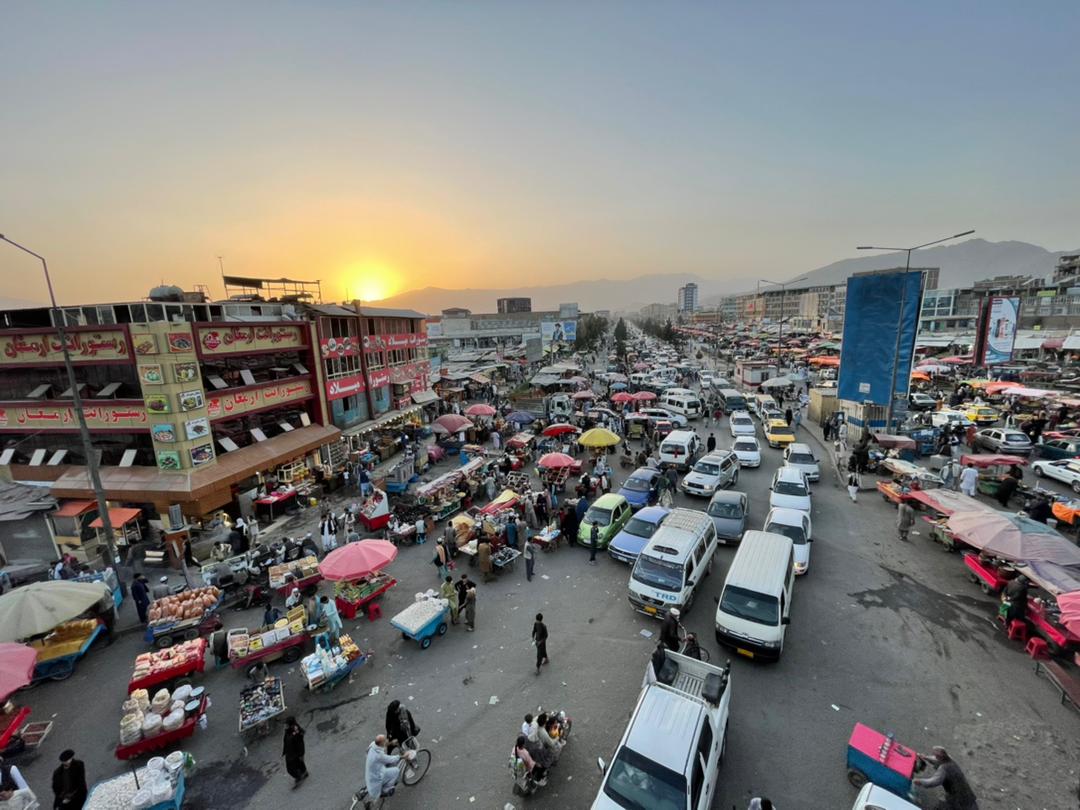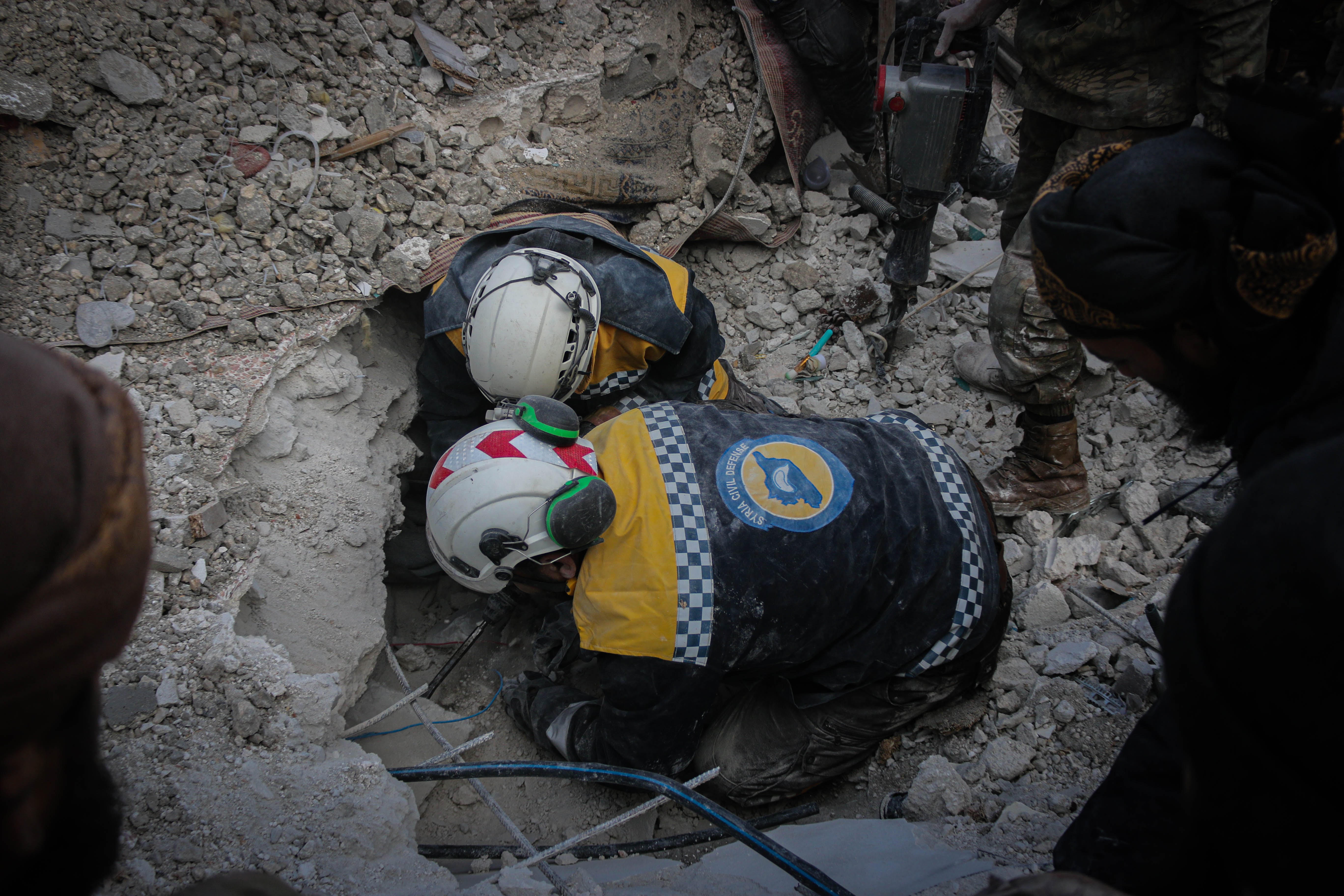“At the start of July 2021, we were buying a 20kg wheat flour bag in Kabul at 1,450 Afghanis (ANF). In mid-August, this price went up to ANF 2,500, but it came down to ANF 2,100 as of 1st September.”
This is what we heard from an Afghan father from Kabul sharing his experience of fluctuating food markets as international forces withdrew from Afghanistan and the Taliban extended its areas of control. But with the country’s fast-developing food security crisis, it is time to re-strategize humanitarian support around food security and livelihoods.
This re-orientation of humanitarian assistance in Afghanistan towards food security and livelihoods is needed for two main reasons.
Firstly, livelihoods opportunities will be severely limited due to the withdrawal of international assistance which encompassed all spheres of life – from construction of roads to demand for day-to-day services. This is not only an issue for the public sphere: services in private sectors like hospitality and security, have all seen a fall in demand with the exit of foreigners from Afghanistan and a desire of local Afghans to live a low-profile life. As a result, the purchasing pattern is moving away from spending on more luxurious items, something people can forgo, to focus only on daily life essentials items. Thus, this reduction in income generation opportunities in the economy will soon have a multiplier effect on people in all spheres of life in the country, leading to decreases in income and subsequently decrease in purchasing power.
Secondly, this decrease in income is happening along with market disruption in the food sector. Access to essential supplies like wheat grain (flour) is decreasing with each passing day due to disruption of trade with neighbours, especially Pakistan. Traditionally, food – especially wheat – is provided to the border Pushtun provinces of Afghanistan from the Pakistani side through informal trading (which can also be called smuggling). The recent border fencing has resulted in closure of informal cross-border routes and has increased the cost of doing business by cross-border traders to continue their engagement in this informal food trade, leading to a significant reduction in localised trading. Much food in the Afghan border provinces now comes from central Afghanistan, rather than Pakistan, where central provinces in Afghanistan are food insecure due to prevailing situation. As winter fast approaches, road blockages in the near future will present even more access challenges, and the food supply route from within Afghanistan will no longer be a viable option.
This market disruption in the form of reduced supply is amplified by ongoing drought in Afghanistan – the second drought the country has experienced in the last four years and yet another manifestation of climate change as can be seen in other parts of the world. According to FAO, this will lead to a reduction of 20% in the cereal produced in Afghanistan, including wheat. As winter fast approaches, with road blockages in near future will present even more access challenges, the food supply route from within Afghanistan will no longer be a viable option. The decrease in value of the Afghani against the US dollar over the last three months has also contributed to the increase in the price of wheat flour in Afghanistan which is mostly imported from Pakistan and Kazakhstan.

“We were expecting a siege of Kabul, so we stored wheat flour for a month at the start of August in our home. This is what we eat every day at home. We couldn’t store more as neither we can afford to buy more nor we can store wheat flour for longer period as it gets spoiled. Now I am finished with my stock, but we have no work, no money and it is costing much more.” An Afghan woman from Kabul.
The combination of reduced income and food market distortions is leading to higher food prices inside Afghanistan, negatively affecting Afghan people. They have less purchasing power to buy food and there is less available food in the market to be bought. Under these conditions the higher number of people who are food insecure in Afghanistan will inevitably grow. To put things in perspective, according to World Food Programme, Afghanistan is a country of some 40 million people where more than 14 million were facing acute food insecurity even prior to the takeover of the country by Taliban. These are the people who are already making up their mind whether to stay in the country despite political and security turmoil or take refuge in neighbouring countries.
Preventing crisis will require support – in-kind and in-cash – in both the short and medium term, as well as more long-term income generation opportunities. It will require close engagement with the Afghan government; a desire for legitimacy and stability on the part of the new political elite in Afghanistan may encourage them to accept propositions for delivery of humanitarian assistance. The role of neighbouring governments, especially of Pakistan with its long history of regional and international collaboration, will be instrumental for extending operational support to deliver food supplies to Afghanistan. The political and funding support of international actors such as the US, UK, Saudi Arabia and Australian governments will be needed, while United Nations agencies including World Food Programme, the Food and Agriculture Organization, UN Development Programme and UNICEF will be required for on-the ground delivery and advocacy with the government. The UN agencies and international organisations like Norwegian Refugee Council (NRC), International Rescue Committee (IRC), Welthungerhilfe (WHH) and Muslim Hands (MH) can be mobilised to extend integrated assistance to vulnerable groups beyond food including protection, legal assistance and nutritional intakes; and ensuring humanitarian principles are upheld and respected.
Through these joint efforts, there is hope that a humanitarian crisis can be averted and Afghans will have a chance to start re-building a life for themselves beyond these difficult times. Now is the right time to re-strategize humanitarian support in Afghanistan, making food security and livelihoods a central point for assistance to prevent forced displacement and human suffering.
About the authors: Mr. Saeed Ullah Khan is a forced migration expert currently working as Principal Consultant with GLOW Consultants Private Limited Pakistan whereas Mr. Zaki Ullah is the GLOW’s Team Leader. Based in Islamabad, GLOW is a research firm specialising in monitoring, evaluation, assessments and learning services. GLOW has expertise in humanitarian assistance, food security and livelihoods, localisation, protection, forced migration, climate change, resilience and related fields. GLOW is a partner with Humanitarian Advisory Group since 2017. For more information, please reach out to us at info@GLOWconsultants.org.
Photo credits: Jaffer Khan/Aaftab Ullah (GLOW).






